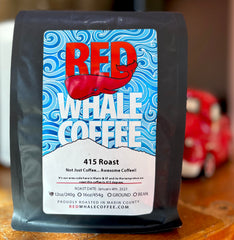Congratulations to Sean! A Newly Licensed Q-Grader! October 16, 2014
We are proud to announce that Sean passed the Q-Grader certification! Learn more about Q Coffee and the Q-Grader certification process!

Coffee spans the globe. It crosses borders, cultures, and continents. Different regions will have different flavor profiles in their coffee, but the taste of quality coffee is recognizable across regions. With such a vastly spread market, how do coffee producers and coffee roasters recognize the quality? How do we say one coffee is actually better than another? Taste alone tells us, but the coffee community has found a way to standardize quality, which will lead to even better quality in the future. Through the Q-Grader certification, a person can understand the characteristics that lead to a good cup of quality. The Coffee Quality Institute (CQI) is standardizing quality and improving the lives of small coffee producers through that quality guarantee.
To become a licensed Q Arabica Grader, you must go through an intense six day course and with rigorous testing. A licensed Q-Grader is able to distinguish characteristics of a coffee with a standardized language that can be understood by roasters and producers, identifying attributes and basic flavors, detect defects and describe the profile of the cup. The Q grader must also remain objective while grading the coffee. A coffee is considered specialty when it is scored higher than 80, according to the standards of the Specialty Coffee Association of America. In order to be a Q Coffee, the coffee must be considered specialty. Receiving the qualification independently guarantees the quality. If the beans are not accepted, there is a detailed technical report which allows the producer to improve the quality and understand what constitutes quality specialty coffee.

(http://coffeeinstitute.org/images/cqi/qgrader/3.%20Q%20Grader%20Protocols%202014%20v4.1.pdf)
These skilled cuppers can recognize the quality level within the coffee and are certified to write up reports about the beans that they have cupped. This allows the Q-Grader the autonomy to work with a producer (and an In-Country Partner) to certify the producer’s coffee with a Q-Certificate.
There is also a standard of ethics that a certified Q-Grader must follow. Any breach in these ethics can lead to loss of their Q-Grader status. These standards help to guarantee there are no dishonest practices in the certification practice, which helps build a system that consumer’s can trust. After a coffee is certified as a Q Coffee, it is a specialty coffee, guaranteed by an independent third-party, which will have detailed cupping notes of the attributes of the coffee.
The Coffee Quality Institute is instigating an exciting shift in specialty coffee. While there is already a practice of communication about quality and improvement between buyers and producer, certifying coffee through Q-Grading will allow producers to have an exact explanation where improvements may be necessary or where their coffee excels. These small farmers often struggle to support their families despite their exceptional coffee, the certification will also allow them to ask prices that are deserving of their coffee. The CQI is working towards a change in coffee but also an improvement in the lives of coffee producers.
Written by: Caitlyn Prien



